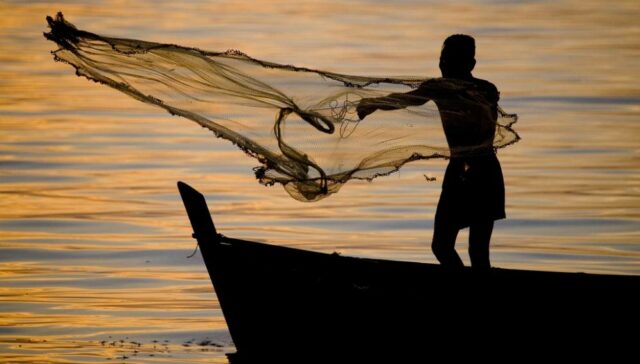
A group of dozens of artisanal fishermen demonstrated against the reactivation of trawling on October 19 in front of the Legislative Assembly. They held a meeting with deputies José María Villalta, Ana Karine Niño, Luis Antonio Aiza, Mileyde Alvarado, and Paola Vega, according to Martín Contreras, president of the Guanacaste Chamber of Fishermen.
“Today we have the participation of certain deputies who at that time did not vote and today we have them saying no to trawling. We feel that the legislative environment is changing,” said the group´s leader.
The fishermen r suffered attacks and roadblocks from shrimp workers during the trip to the Legislative Assembly in Barranca and La Angostura. At this last point, one of the fishing buses was shot in a tire.
Despite this, the protesters were present in the Legislative Assembly in rejection of the bill that would seek to reactivate trawling. This would be close to being voted on in the second debate.
The law file was already approved in the first debate and received the endorsement of the Constitutional Chamber, despite not having robust studies that demonstrate its environmental sustainability. Still, the fishermen were optimistic.
“The deployment that we show today of all the fishing communities that reached the Legislative Assembly I think is causing a change in the minds of deputies with relation to the bill,” said the fisherman´s spokesperson.
According to his statements, when meeting with the legislators, they indicated to him “that we had to maintain constant communication with the deputies who could still be undecided.”
“They promised to do the work with other deputies, indicating that this project does not solve employment for anyone,” added the Guanacaste fisherman.
Artisanal fishing
The approval of the trawling technique, according to the fishermen, would be “disastrous”, since it already negatively impacted them in the past. Shrimp catches fell from 5,000 kg to 1,100 kg in 36 years, according to data from the Costa Rican Institute of Fisheries and Aquaculture (Incospesca).
“The resumption of trawling would be disastrous. It would be going back to 2009 when the artisanal fleet fell 70%. The artisanal fleet practically disappeared”, they said.
Since the last shrimp boat licenses expired in the past three years, catches have been improving, according to data from the Guanacaste Chamber of Fishermen. Between 2019 and 2020, the amount of catch for fishermen in Guanacaste increased by 25%.
But not only the quantity, but also the size of the fish has grown. While in 2019 specimens between 25 and 27 cm were captured, now the size is between 34 and 36 cm.
“We have shown that we are more than 800 trawling licenses being considered, even a thousand. It is not true that there are only 50 being processed. So we are concerned about who these licenses will benefit. Who are they really for?”, concluded the fishermen.

